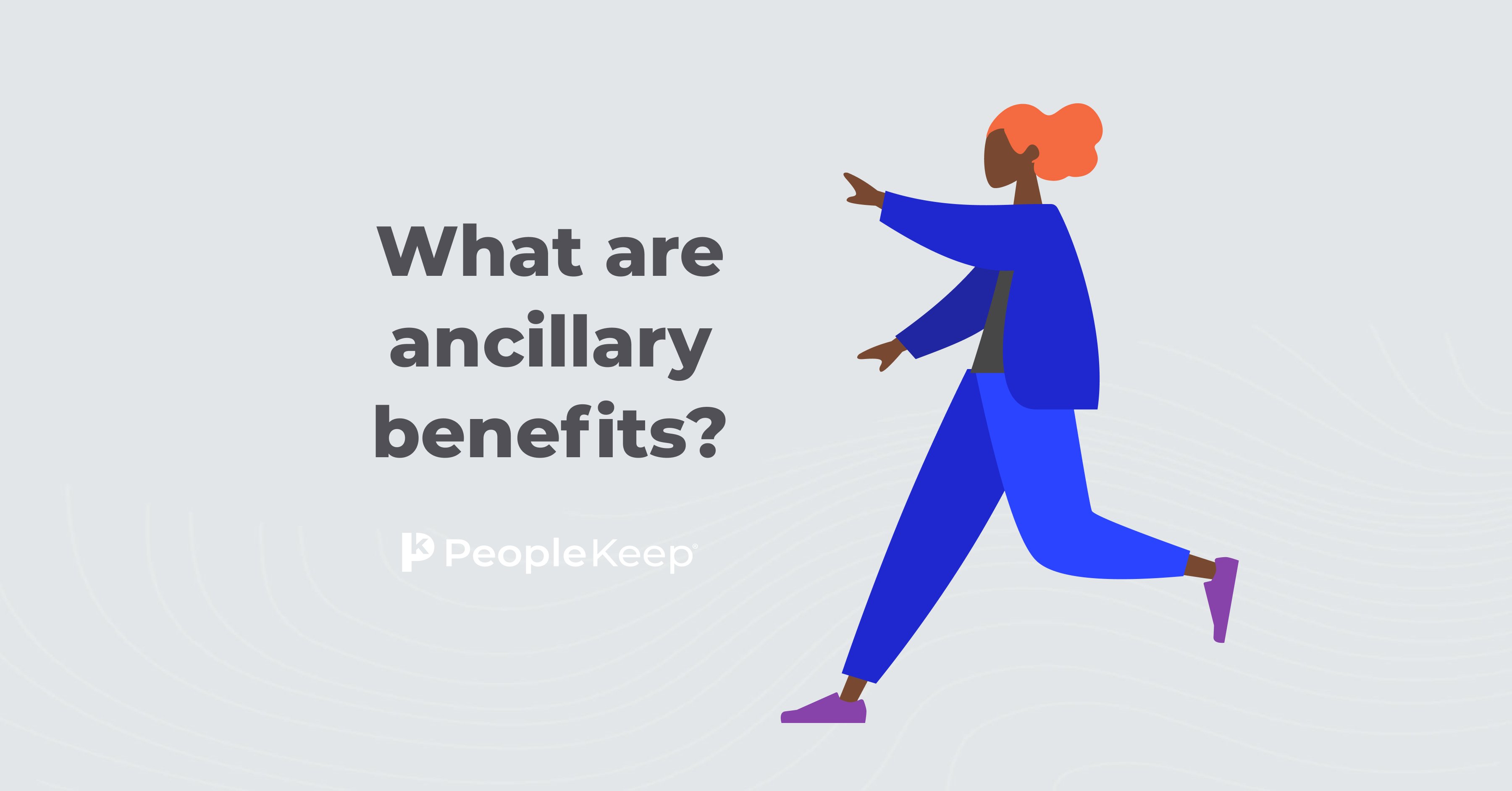What is a supplemental health benefit?
By Elizabeth Walker on June 25, 2024 at 1:43 PM
Medical costs have risen dramatically in the U.S. over the past several decades. According to a Kalorama Information study, the average American pays roughly $1,650 out-of-pocket for their medical bills1. Many employees are discovering their employer-sponsored health insurance plan isn't enough on its own. This is forcing employers to look at the gaps in their health benefits.
To rectify this problem, some employers buy one or more supplemental health insurance policies to complement their primary health insurance plan. Supplemental coverage helps employees pay for out-of-pocket medical care costs associated with group health insurance plans. They may also purchase an ancillary plan to offset costs the group plan doesn’t cover.
While this additional coverage can reduce employees' out-of-pocket costs, having several supplemental plans can be expensive. It also may not give your employees exactly what they need.
In this article, we'll define health insurance supplements, the common expenses they cover, and other ways you can improve your current plan, such as health reimbursement arrangements (HRAs) and employee stipends.
Takeaways from this blog post:
- There are several forms of supplemental health insurance coverage, such as critical illness insurance. There are also ancillary plans like vision and dental plans and hospital insurance.
- Employees can buy individual supplemental policies to meet their specific needs, such as Medicare supplement plans for older workers.
- Employers have the option to bundle their group health insurance coverage with tax-advantaged HRAs, such as a group coverage HRA (GCHRA), as an alternative to traditional supplemental insurance plans.
What is a health insurance supplement?
Supplemental insurance is a plan that you can purchase to help your employees pay for services and out-of-pocket expenses that your group plan doesn’t fully cover. This additional insurance coverage can offer your employees financial protection and peace of mind when the unexpected happens.
Most supplemental insurance policies help pay for out-of-pocket cost-sharing expenses—such as copays and deductibles—when a serious illness or accident occurs. A supplemental health insurance plan may be worth the additional cost if you have a diverse workforce with varying health needs.
Remember that supplemental plans aren't a substitute for comprehensive health coverage That’s because most supplemental plans don't meet minimum essential coverage (MEC). But they’re a good solution if you want to provide limited benefits for specific preventive treatments, critical illnesses, or health conditions to help your employees in their time of need.
How do supplemental health plans differ from ancillary insurance?
Contrary to what you might think, supplemental health insurance and ancillary insurance aren’t the same. While they both provide additional coverage that can supplement a health insurance plan, they cover different expenses.
While supplemental plans help with out-of-pocket costs relating to serious medical conditions, deductibles, or copays, ancillary plans provide coverage for services a health insurance plan doesn’t cover. This can include dental, vision, and life insurance.
Can employees purchase their own health insurance supplement?
If you're not looking to purchase supplemental insurance for your entire organization, there are other options. Your employees can purchase individual supplemental policies to cover their specific needs. Depending on the type of plan they want, they may not need to wait until the annual open enrollment period to purchase their supplemental plan.
For example, if you have many older employees, they may be interested in supplementing their Medicare. Medicare supplement plans, or Medigap policies, are health insurance policies that limit the amount people 65 or older will pay for medical services once they’re on Medicare. These plans work with their original Medicare Part A and Medicare Part B to help them pay for out-of-pocket costs that aren't covered.
Recommending individual supplemental medical coverage and Medicare supplement insurance plans to your workforce is a cost-effective solution for your business and a customized alternative for your employees.
What are the common expenses covered with health insurance supplements?
If costly life expenses pop up for your employees, supplemental insurance plans can help. Employers may offer them as a voluntary benefit, or your employees can purchase a plan directly from private insurance companies, an insurance agent, or the health insurance marketplace.
- Supplemental insurance can include a variety of policies. Common types of supplement insurance include:
- Critical illness insurance
- Also known as disease-specific insurance
- Accidental death and dismemberment insurance
- Provides cash lump sums to your employee’s named beneficiary if they die or are severely injured in an accident
- Accident insurance
- Helps pay for medical costs resulting from a covered accident, including home care services
- Hospital indemnity insurance
- Helps pay for hospital confinement costs not generally covered by medical insurance
- Short- and long-term care insurance plans
- Medicare supplement plan or a Medigap plan
- Prescription drug coverage
You can also purchase supplemental health plans for critical illnesses like cancer, stroke, or kidney failure. Other less common policy types may help pay for food, medicine, transportation, and other expenses related to a major illness or injury.
You can also offer ancillary insurance for expenses your group plan doesn’t cover, such as the following:
- Dental and vision coverage
- While traditional health plans generally don’t include adult dental and vision insurance, the Affordable Care Act (ACA) requires all plans to provide coverage for pediatric dental and vision
- Life insurance
- Disability insurance
Options to supplement your group health insurance plan
Sometimes, the escalating cost of group health insurance plans leaves employers feeling like they have to settle for less comprehensive coverage with many separate supplement plans. If you're finding supplemental health insurance doesn't cover what you need or is out of your budget, it could be time to look for another benefit option.
The good news is that employers can instead bundle their group health insurance coverage with a tax-advantaged HRA, like an excepted benefit HRA (EBHRA) or group coverage HRA (GCHRA). An HRA allows you to offer your employees a monthly allowance for their qualifying medical expenses. We'll discuss each option below so you can better understand which one may work best for your business.
Excepted benefit HRA
The first supplemental health coverage option we'll go over is the EBHRA. EBHRAs enable employers of all sizes to reimburse their employees tax-free for healthcare expenses and excepted premium benefits, meaning benefits exempt from the ACA's requirements.
While an EBHRA can typically cover any of these eligible expenses, employers can choose which of those expenses they want to cover. Annual contribution limits also bind EBHRAs. The 2024 annual limit for EBHRA contributions is $2,100.
Other reimbursable expenses under an EBHRA include:
- Limited scope vision and dental insurance
- COBRA continuation
- Cost-sharing of copays, deductibles, and other eligible medical expenses
- Short term limited-duration insurance premiums
- Long-term care coverage
You can only offer an EBHRA alongside an employer-sponsored group health plan that meets MEC. However, employees don't have to enroll in the employer's traditional health insurance plan to participate in the EBHRA benefit. This allows employees to choose the healthcare they need without the employer paying for several supplemental plans.
Group coverage HRA (GCHRA)
Another great option is a GCHRA, also known as an integrated HRA. A GCHRA is a tax-free reimbursement arrangement for employers to supplement their employees' out-of-pocket costs that aren't fully paid for in their group health insurance plan.
Employers can customize restrictions regarding what their GCHRA can reimburse. This allows employers to take greater control of their budgets while allowing their employees to enjoy affordable monthly premiums and flexible reimbursements.
Employers set a monthly allowance for employees to use each month toward out-of-pocket expenses, such as:
- Deductibles
- Coinsurance
- Copays
- Other qualified medical expenses
Like the EBHRA, employers with GCHRAs must provide a group coverage plan that meets MEC. But unlike EBHRAs, employees must be enrolled in the employer's group health plan to participate. They also come with no contribution limits, so employers can give their employees as much or as little money as they choose. Lastly, unlike EBHRAs, GCHRA funds can't reimburse insurance premiums.
Taxable stipends
You can also offer a stipend to your employees. This is taxable money they can use to purchase their out-of-pocket medical expenses. Employers usually provide a stipend through monthly allowances added to your employee's regular paycheck, but some organizations choose to offer a lump-sum cash benefit.
There's no requirement that your employees must use this additional money to purchase healthcare items or services. Stipends are becoming increasingly popular in today's work climate because they can improve workplace culture and the employee experience. They help employers put the money and choice in the hands of employees so they can get the perks they want most and reduce their financial strain.
Conclusion
A supplemental health insurance plan can be a valuable addition to a major medical plan. It may cover some or all of your employees' out-of-pocket costs, while ancillary plans provide coverage for services that aren't covered by your major medical plan, such as vision and dental care. But supplemental health insurance can be limited and costly, so it's essential to consider all your options.
Supplemental health benefits, such as a GCHRA, can provide an all-in-one solution to boost your group health insurance plan. If you think a GCHRA is right for your organization, PeopleKeep can help! Our personalized benefits administration software makes it easy to set up and manage HRAs in just minutes each month.
This blog article was originally published on February 23, 2022. It was last updated on June 25, 2024.
Check out more resources
See these related articles

What are ancillary benefits?
These secondary benefits, known as ancillary benefits, can be paired with group health insurance to provide your employees with additional benefits.

Why you should offer small business employee benefits
Discover why offering employee benefits is essential for small businesses. Learn how benefits can boost retention, productivity, and growth.

Offering fertility benefits to your employees
Want to provide fertility benefits to your employees? Learn how offering these benefits can attract talent and support your staff's journey to parenthood.



